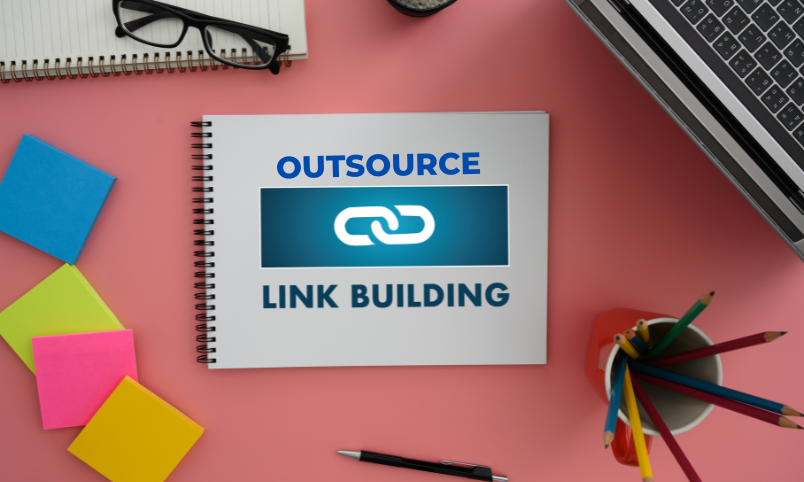By Esabda
In recent years, Artificial Intelligence (AI) has become an integral part of the recruitment process. As technology advances, AI has the ability to revolutionize and streamline the recruitment process, saving both time and money. In this article, we will explore the benefits of using AI in recruitment and the roles it can play in the hiring process.
Recruiting the right candidate can be a time-consuming and costly process for organizations. It can take weeks or even months to find the perfect candidate for a job opening. This is where AI can play a significant role in the recruitment process, by automating repetitive tasks and reducing bias in the hiring process.
Benefits of Using AI in Recruitment
There is so much more to come from artificial intelligence in the recruitment process. Although there are various ways that AI can help in the process of recruitment. Some of the key benefits of using artificial intelligence in recruitment are explained below:
Faster and More Efficient Screening
One of the most significant benefits of AI in recruitment is that it can quickly and efficiently screen a large number of resumes. Which is one of the hardest thing to do for a HR in company. AI algorithms can scan and analyze resumes and cover letters to identify the most qualified candidates. This helps to reduce the time spent on manual screening, enabling recruiters to focus on higher-level tasks. By making the recruitment process more faster this is one of the major benefits of AI in recruitment process.
Reducing Bias in Hiring
By using artificial intelligence in recruitment we can also reduce the bias in hiring process. AI algorithms can also help to reduce bias in the recruitment process. By removing personal information such as name, gender, age, and race from resumes, AI can eliminate unconscious bias in the screening process. This ensures that candidates are selected based on their qualifications and skills, rather than their personal characteristics.
Cost Reduction
Another big benefit of AI in recruitment process is cutting the extra cost from the whole hiring process. By automating tasks such as resume screening, scheduling interviews, and sending follow-up emails, AI can save recruiters a significant amount of time and money. This allows recruiters to focus on higher-level tasks, such as interviewing and assessing candidates, which require human expertise.
Improved Candidate Experience
AI can also improve the candidate experience by providing a more personalized and engaging recruitment process. Chatbots and virtual assistants can be used to answer candidates’ questions, provide feedback, and schedule interviews, creating a seamless and positive experience for candidates.
Access to a Larger Talent Pool
AI can help to expand the talent pool by identifying qualified candidates who may have been overlooked in the traditional recruitment process. This includes passive candidates who are not actively looking for jobs but may be interested in new opportunities if approached in the right way.
Roles of Artificial Intelligence in Recruitment
Artificial Intelligence is evolving rapidly, and applicable for many industries. Ai is helping various jobs to be more fast and efficient. Likewise, any other workflow, Artificial intelligence has some great roles in recruitment process. The engagement of the AI in recruitment has made hiring process more effective. Some of the major roles of artificial intelligence in recruitment are explained below:

1. Resume Screening
AI can quickly and efficiently screen a large number of resumes and cover letters, identifying the most qualified candidates based on keywords, qualifications, and experience. This helps to reduce bias in the screening process and ensures that recruiters can focus on higher-level tasks.
2. Candidate Sourcing
AI can help to identify and attract qualified candidates from a variety of sources, including job boards, social media platforms, and professional networks. This expands the talent pool and ensures that recruiters have access to a diverse range of candidates.
3. Interview Scheduling
AI can automate the scheduling of interviews, sending reminders and follow-up emails to both candidates and recruiters. This saves time and ensures that candidates are engaged throughout the recruitment process.
4. Candidate Assessment
AI can be used to assess candidates’ skills and qualifications, using tools such as predictive analytics, psychometric testing, and video interviews. This helps to identify the most qualified candidates and ensures that recruiters can make informed decisions based on data.
5. Onboarding and Training
AI can also play a role in the onboarding and training process, providing personalized training materials and tracking employee progress. This ensures that new hires are fully trained and prepared for their new roles.
ALSO READ: 10 Crucial Cybersecurity Tips for Small Business
Examples of AI in Recruitment
One example of AI in recruitment is the use of AI-powered chatbots to provide a more personalized experience for candidates. Chatbots can be programmed to answer common questions, provide feedback on the candidate’s application, and even schedule interviews. This saves time for recruiters and ensures that candidates have a positive experience throughout the recruitment process. Some of the artificial intelligence chatbots are Manatal, Hiredscore, etc.
Another example is the use of AI algorithms to screen resumes and identify qualified candidates. These algorithms can analyze thousands of resumes and identify the most relevant candidates based on their skills, experience, and qualifications. This saves time for recruiters and ensures that the most qualified candidates are identified and considered for the position.
AI can also be used to identify passive candidates by analyzing data from job boards, social media platforms, and professional networks. This expands the talent pool and ensures that recruiters have access to a diverse range of candidates.
ALSO READ: Artificial Intelligence in Food Industry | Applications And Trend
Challenges Of Using AI in Recruitment
There are several challenges associated with using AI in recruitment. One challenge is the potential for bias in the AI algorithms. If the algorithms are not designed and trained correctly, they may perpetuate existing biases in the recruitment process, such as gender or racial bias. This can result in a lack of diversity in the candidate pool and ultimately harm the organization’s reputation.
Another challenge is the risk of relying too heavily on AI and neglecting the human element of the recruitment process. While AI can automate certain tasks, such as resume screening and interview scheduling, human recruiters are still essential for making informed hiring decisions and providing a personalized experience for candidates.
There is also the challenge of ensuring that the AI algorithms are transparent and explainable. This is particularly important in industries such as finance and healthcare, where the decision-making process must be transparent and accountable.
Finally, there is the challenge of ensuring that candidates are informed about the use of AI in the recruitment process and have the option to opt-out if they choose. This requires organizations to be transparent about their use of AI and ensure that candidates understand how their data will be used and protected.
Conclusion
In conclusion, Artificial Intelligence has the potential to revolutionize the recruitment process by automating repetitive tasks, reducing bias, and providing a more personalized experience for candidates. AI can also help to expand the talent pool and save time and money for recruiters. The roles of AI in recruitment include resume screening, candidate sourcing, interview scheduling, candidate assessment, and onboarding and training. As technology continues to advance, AI will play an increasingly important role in the recruitment process, enabling recruiters to make more informed and efficient hiring decisions.
ALSO READ: Top 10 Essential AI Applications for Small Business
FAQs Related to AI in Recruitment
No, AI cannot replace the role of human recruiters. While AI can automate certain tasks, such as resume screening and interview scheduling, human recruiters are still essential for making informed hiring decisions and providing a personalized experience for candidates.
AI can help to reduce bias by removing personal information from resumes, such as name, gender, and age. This ensures that candidates are selected based on their qualifications and skills, rather than their personal characteristics.
Yes, AI can help to identify passive candidates by analyzing data from job boards, social media platforms, and professional networks. This expands the talent pool and ensures that recruiters have access to a diverse range of candidates.
One potential drawback is the risk of relying too heavily on AI and neglecting the human element of the recruitment process. Additionally, there is a risk of perpetuating bias if the AI algorithms are not designed and trained correctly.
Organizations can ensure that AI is used ethically by regularly monitoring and auditing the AI algorithms to ensure that they are not perpetuating bias. Additionally, organizations should ensure that candidates are informed about the use of AI in the recruitment process and have the option to opt-out if they choose.




